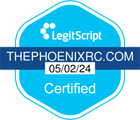DMT Addiction Treatment
Dimethyltryptamine, also known as DMT, is a potent hallucinogenic drug that affects the body’s serotonergic system, causing users to experience a psychedelic high and hallucinations. It has an international classification as a Schedule I drug, the highest possible classification.
A fall 2012 Global Drug Survey revealed that 8.9% of respondents had at least tried DMT at some point in the lives, and that 5% of respondents had used it within the past year. DMT had a reportedly higher rate of new users compared to other hallucinogens such as psilocybin (mushrooms), LSD, and ketamine, with the DMT drug use rate being 24%.
DMT seems to be increasing in popularity due to its relatively few negative side effects and lower capacity to cause addiction compared to many other substances, but it still remains a dangerous drug with the potential to cause harm to its users.
If you or a love one is struggling with dimethyltryptamine or DMT addiction, you should know there is hope for recovery. The Phoenix Recovery Center offer treatment for DMT addiction, and our DMT treatment program provides patients and their families with the tools they need to overcome their addiction and return to living a full and meaningful life. Read on to learn more about DMT addiction and the DMT treatment options available from The Phoenix.



